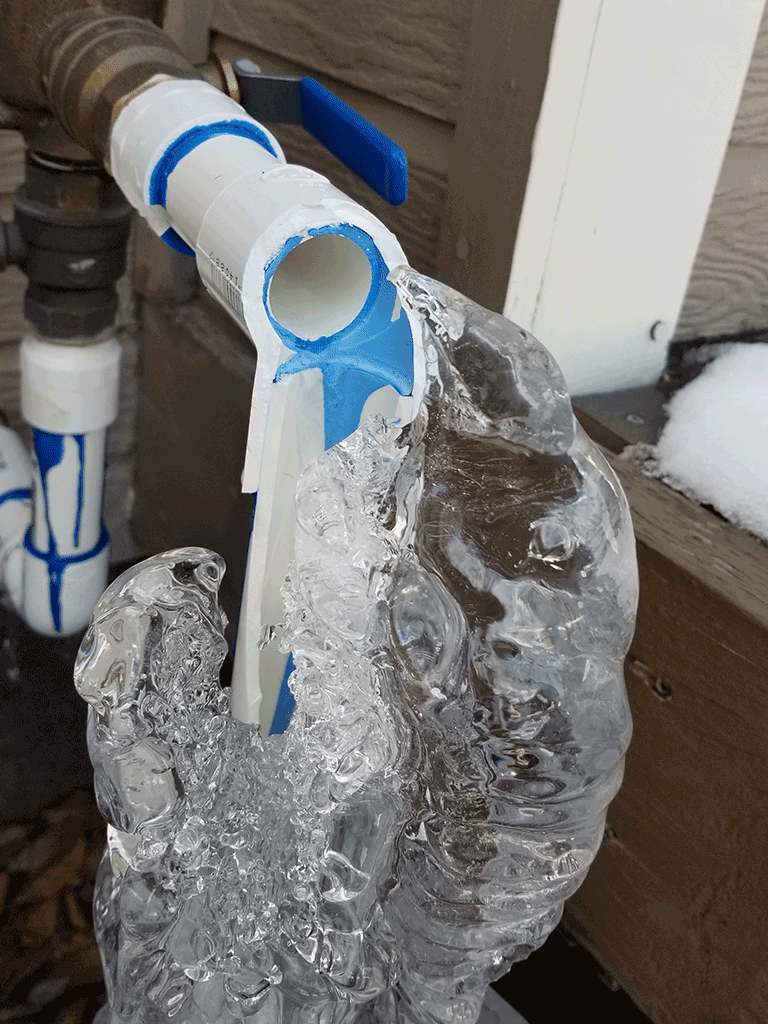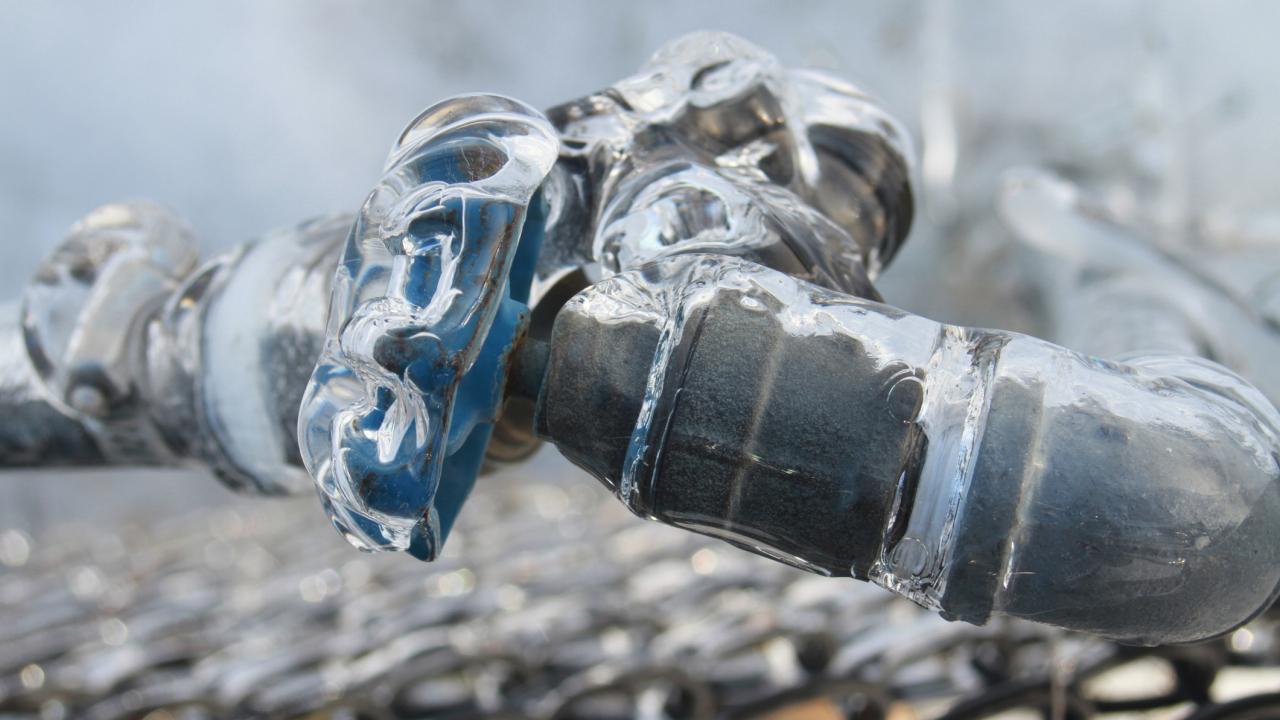Tips to Protect Your Plumbing from Cold Weather: Key Advice
Tips to Protect Your Plumbing from Cold Weather: Key Advice
Blog Article
This great article down the page pertaining to Helpful Tips to Prevent Frozen Pipes this Winter is truly attention-grabbing. Read it for yourself and see what you think about it.

Winter can damage your pipes, specifically by freezing pipes. Here's exactly how to stop it from taking place and what to do if it does.
Intro
As temperature levels drop, the danger of icy pipelines rises, possibly causing pricey repair work and water damage. Understanding how to prevent icy pipelines is important for homeowners in cool environments.
Recognizing Icy Pipelines
What creates pipelines to ice up?
Pipes freeze when subjected to temperatures listed below 32 ° F (0 ° C) for prolonged periods. As water inside the pipes ices up, it expands, taxing the pipe walls and possibly creating them to break.
Threats and damages
Frozen pipelines can lead to water system disruptions, residential property damage, and expensive repairs. Ruptured pipelines can flood homes and trigger considerable structural damage.
Indicators of Frozen Piping
Determining icy pipelines early can avoid them from bursting.
Exactly how to determine frozen pipes
Seek reduced water circulation from taps, uncommon smells or sounds from pipelines, and visible frost on revealed pipes.
Prevention Tips
Insulating prone pipes
Cover pipes in insulation sleeves or utilize warm tape to shield them from freezing temperature levels. Focus on pipelines in unheated or external areas of the home.
Home heating techniques
Keep indoor spaces adequately warmed, specifically locations with pipes. Open cupboard doors to permit cozy air to circulate around pipes under sinks.
Safeguarding Outdoor Pipes
Garden pipes and outdoor taps
Separate and drain pipes yard pipes before winter. Install frost-proof faucets or cover outside faucets with shielded caps.
What to Do If Your Pipes Freeze
Immediate actions to take
If you presume frozen pipelines, keep taps available to ease pressure as the ice thaws. Utilize a hairdryer or towels taken in warm water to thaw pipelines slowly.
Long-Term Solutions
Architectural modifications
Take into consideration rerouting pipelines far from exterior walls or unheated areas. Include added insulation to attic rooms, basements, and crawl spaces.
Upgrading insulation
Invest in top quality insulation for pipes, attics, and walls. Correct insulation assists keep consistent temperature levels and lowers the risk of icy pipelines.
Verdict
Protecting against frozen pipes calls for positive actions and fast actions. By understanding the causes, indications, and preventive measures, property owners can protect their plumbing during winter.
Helpful Tips to Prevent Frozen Pipes this Winter
UNDERSTANDING THE BASICS: WHY PIPES FREEZE AND WHY IT’S A PROBLEM
Water freezing inside pipes is common during the winter months, but understanding why pipes freeze, and the potential problems it can cause is crucial in preventing such incidents. This section will delve into the basics of why pipes freeze and the associated problems that may arise.
THE SCIENCE BEHIND FROZEN PIPES
When water reaches freezing temperatures, it undergoes a physical transformation and solidifies into ice. This expansion of water as it freezes is the primary reason pipes can burst. As the water inside the pipe freezes, it expands, creating immense pressure on the walls. If the pressure becomes too great, the pipe can crack or rupture, leading to leaks and water damage.
FACTORS THAT CONTRIBUTE TO PIPE FREEZING
Low Temperatures: Extremely cold weather, especially below freezing, increases the risk of pipes freezing. Uninsulated or Poorly Insulated Pipes: Pipes located in unheated areas, such as basements, crawl spaces, or attics, are more prone to freezing. Insufficient insulation or lack of insulation altogether exacerbates the problem. Exterior Wall Exposure: Pipes running along exterior walls are susceptible to freezing as they encounter colder temperatures outside. Lack of Heating or Temperature Regulation: Inadequate heating or inconsistent temperature control in your home can contribute to frozen pipes. PROBLEMS CAUSED BY FROZEN PIPES
- Pipe Bursting: As mentioned earlier, the expansion of water as it freezes can cause pipes to burst, resulting in significant water damage.
- Water Damage: When pipes burst, it can lead to flooding and water damage to your property, including walls, ceilings, flooring, and personal belongings.
- Structural Damage: Prolonged exposure to water from burst pipes can compromise the structural integrity of your home, leading to costly repairs.
- Mold and Mildew Growth: Excess moisture from water damage can create a favorable environment for mold and mildew growth, posing health risks to occupants.
- Disrupted Water Supply: Frozen pipes can also result in a complete or partial loss of water supply until the issue is resolved.
WHY CERTAIN PIPES ARE MORE PRONE TO FREEZING
- Location: Pipes located in unheated or poorly insulated areas, such as basements, crawl spaces, attics, or exterior walls, are at higher risk of freezing.
- Exterior Pipes: Outdoor pipes, such as those used for irrigation or exposed plumbing, are particularly vulnerable to freezing as they are directly exposed to the elements.
- Supply Lines: Pipes that carry water from the main water supply into your home, including the main water line, are critical to protect as freezing in these lines can affect your entire plumbing system.
- Underground Pipes: Pipes buried underground, such as those connected to sprinkler systems or outdoor faucets, can be susceptible to freezing if not properly insulated.
https://busybusy.com/blog/helpful-tips-to-prevent-frozen-pipes-this-winter/

Hopefully you liked our post about How to Prevent Your Pipes From Freezing. Thanks a lot for taking a few minutes to browse our short article. In case you enjoyed our page if you please make sure you remember to share it. Thanks a lot for taking the time to read it.
Click For More Info Report this page